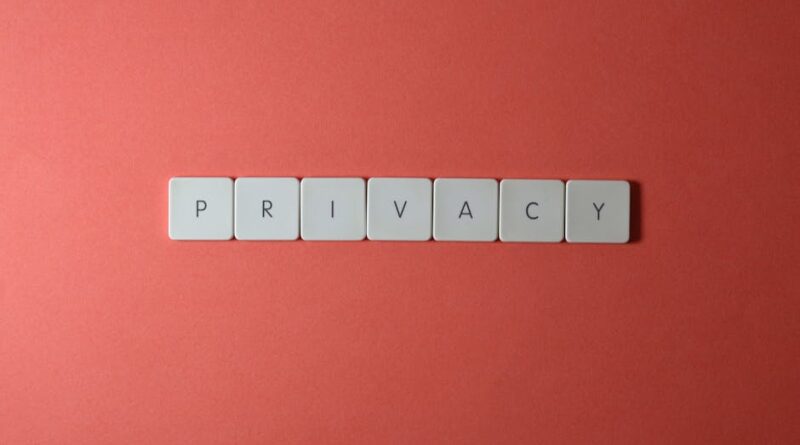How Proxies Protect Your Identity Online
Did you know that every time you browse the internet, your personal information is at risk? Your IP address reveals a lot about you, including your location and browsing habits. That’s where proxies come in. They act like a shield, helping to keep your identity safe while you explore the online world.
What is a Proxy?

A proxy is like a middleman between you and the internet. When you use a proxy, your requests go through it before reaching the websites you visit. In simpler terms, it masks your identity by hiding your real IP address.
Imagine you’re sending a letter. Instead of sending it from your home address, you send it from a friend’s address. That way, the recipient doesnt know where you really live. Proxies work the same way, keeping your real IP address hidden.
Why Use a Proxy for Online Safety?

There are many reasons why people choose to use proxies. Here are some of the most common:
- Enhanced Privacy: Proxies conceal your IP address, making it harder for others to track you.
- Bypass Restrictions: Some websites block access based on your location. Proxies help you bypass these geographical restrictions.
- Anonymity: Proxies allow you to browse the web anonymously, which is great for personal security.
- Data Scraping: Businesses use proxies to gather data without revealing their identity.
How Do Proxies Protect Your Identity?

Now that we understand what proxies are and why they’re useful, lets explore how they specifically protect your identity online.
1. Masking Your IP Address
Your IP address is like your digital fingerprint. It can reveal your location and even your internet service provider (ISP). When you connect to a proxy, your real IP address is hidden, and the proxy’s IP is displayed instead.
This is crucial for privacy. If someone were to try and track your online activity, they would only see the proxy’s address, not yours. This keeps your personal information safe from prying eyes.
2. Encrypting Your Data
Many proxies, especially those called HTTPS proxies, encrypt the data you send over the internet. This means that even if someone intercepts your data, they can’t read it.
Think of encryption like sending a secret message. Only the person with the right key can decode it. Similarly, encrypted data keeps your online activities private, even on unsecured networks.
3. Preventing Tracking and Targeted Ads
Have you ever noticed ads that seem to know exactly what you were just searching for? This is often due to tracking cookies. Proxies can help reduce this tracking.
When you use a proxy, advertisers can’t easily track your online behavior. This means less targeted advertising and a more private browsing experience.
Are There Different Types of Proxies?

Yes! Not all proxies are created equal. Here are some common types:
- HTTP Proxies: Best for browsing websites. They don’t encrypt your data but can speed up your connection.
- HTTPS Proxies: These encrypt your data and are great for secure browsing.
- SOCKS Proxies: More versatile, they can handle any type of traffic, including games and torrents.
- Transparent Proxies: These don’t hide your IP address but can be useful for filtering content.
Choosing the right type of proxy depends on your needs. If privacy is your top concern, go for HTTPS or SOCKS proxies.
Common Misconceptions About Proxies
Many people have questions about proxies. Here are some common misconceptions:
1. Are Proxies Only for Criminal Activity?
Some believe that proxies are only used for illegal activities. While criminals may use them, most people use proxies for legitimate reasons like privacy and security.
2. Do Proxies Guarantee Complete Anonymity?
While proxies enhance your privacy, they don’t guarantee complete anonymity. Some websites may still track you through cookies or other means. To maximize your privacy, consider combining proxy use with a virtual private network (VPN).
Can Anyone Use a Proxy?
Absolutely! Using a proxy is easy. You don’t need to be a tech expert. Many services offer user-friendly interfaces, so you can get started quickly.
Heres how to set up a proxy:
- Choose a proxy service provider.
- Sign up for an account.
- Follow the setup instructions, usually involving entering the proxy server’s IP address into your device settings.
- Start browsing the internet securely!
Conclusion: Take Charge of Your Online Privacy
In a world where online privacy is becoming increasingly important, proxies offer a simple way to protect your identity. They hide your IP address, encrypt your data, and prevent tracking, giving you greater control over your online experience.
Remember, while proxies are useful, they are just one tool in your privacy toolbox. Combining them with other methods, like VPNs and secure browsers, can enhance your safety even more.
So, why not take a step toward better online privacy today? Explore proxy options and find one that fits your needs. Your online identity will thank you!
For more insights on staying safe online, check out this detailed guide on privacy protection from the FTC.



